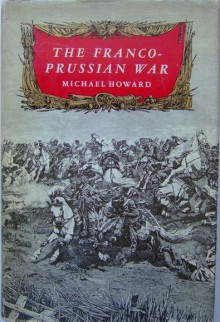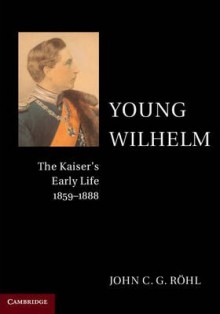

For women living in the West, the nineteenth century was one of considerable achievement. Though most lived lives defined by gender norms enshrined by class and tradition, a determined few sought to breach the barriers before them to gain greater opportunities across a variety of fields. This effort and its accomplishments is the subject of Linda Clark's book. In a series of chapters she surveys women's advancements across professions dominated by men, from the creative fields of art, literature and music to the increasingly professional realms of education, law and medicine. Though their numbers were limited, Clark credits them with making possible the careers of the hundreds, then thousands, of women who followed them in subsequent decades, making possible the opportunities heretofore denied them.
Clark's book is an informative account of the campaigns for women's rights at a pivotal point in European history. Her focus is almost exclusively on women at the upper ends of society, which is understandable as they were the ones with the means to wage such efforts. Yet their more clearly delineated lives can hamper her text, as at several points her text becomes little more than a series of biographies of remarkable individuals, with little in the way of analysis that draws out broader conclusions. This focus on the specific rather than the general extends to her coverage of national restrictions; while an understandable approach, rarely does she break from this to offer any overarching assessment that justifies such a Europe-wide approach. This makes her book a useful introduction, but one that leaves readers to draw their own conclusions as to the broader factors behind the march of women towards greater rights and equality of opportunity in the West.

Michael Howard's history of the Franco-Prussian War has long been regarded as a classic of military history, and after reading it it's easy to see why. His book is a incisive recounting of the combatants and the operations they undertook over the course of the ten-month-long conflict. In the process he identifies the elements that defined the conflict, showing how just ill-prepared the French were for the war they faced, how poorly suited the French generals were for the type of war they were in, and how precarious Prussia's victory was after their ostensibly decisive victory in the battle of Sedan. While Geoffrey Wawro's history of the war serves as a better introduction to the subject thanks to its broader coverage of the context of events, nobody interested in understanding the course of the fighting can afford to skip Howard's perceptive and enduring examination of it.

Perhaps the first question that arises when confronted with a three-volume biography of the German emperor Wilhelm II is: "Why?" Specifically, why does the failed ruler of a fallen dynasty deserve such attention? For some, the question answers itself, given that Wilhelm's reign ended in a war that defined the 20th century and reshaped the map of the Europe. But does his life warrant the three substantial tomes John Röhl has written about it?
The answer is a definitive "Yes," because what Röhl provides is not just a finely detailed account of the first three decades of Wilhelm's life, but a close examination of the family politics surrounding them. In doing so, what he offers his readers is a study that encompasses Wilhelm's parents — the future emperor Frederick III and his English wife Victoria — and the politics of the German court and the imperial Germany. This context is of particular relevance in Röhl's view given the vision that Frederick and Victoria had of a more liberal Germany than the monarch-dominated empire constructed by Otto von Bismarck, and their efforts to pass along their values to their eldest son. Their total failure to do so is an important part of the story of the Second Reich, and one that requires explanation.
Providing it serves as the focus of Röhl's first volume. In it he describes a childhood of constant pressures, ones that increased after Prussia established the German empire in 1871. Yet Wilhelm faced the additional problem of a physical handicap resulting from a difficult birth, one that left him with Erb's palsy on his left arm. Unable to accept this, Wilhelm's family employed often painful medical procedures and corrective devices designed to "correct" it, yet this could only moderate the effects of the paralysis. While many have speculated on the impact of such a paralysis on his emotional development, just as important was how it defined his relationship with his parents at his early age, which Röhl considers in detail. Relying upon a Freudian approach, he diagnoses many of Wilhelm's subsequent issues as stemming from his flawed relationship with his parents, ones that were often exacerbated by their best efforts to aid their son.
As heir to the throne from the moment of his birth, both Frederick and Victoria devoted considerable attention to the selection of Wilhelm's tutor, Georg Hinzpeter, and insisted that he attend a gymnasium and university. Yet for all of their efforts, Wilhelm grew into a temperamental young man who reveled in masculine martial activities. Rejecting his parents political values, increasingly he gravitated towards conservative, even reactionary figures, who welcomed his interest for the opportunity it provided to advance their vision of Germany and the world. Their political maneuvering increased as the emperor, Wilhelm I, neared the end of his long life and Frederick's illness from cancer promised a short reign. With their deaths in 1888 Wilhelm was poised for a long reign with enormous consequences for the entire world.
Röhl's book is an enormous achievement. Based on decades of research in the royal archives, it provides a careful examination of WIlhelm's personal and political development. At times the degree of detail can be wearying, and Röhl's reliance on Freudian explanations is a little questionable, but given the solid footing in the family papers it's impossible to dismiss altogether the arguments he makes. The result is a book that is unlikely ever to be surpassed as a thorough examination of Wilhelm's early years, one that lays a formidable foundation for the study of the reign that followed.